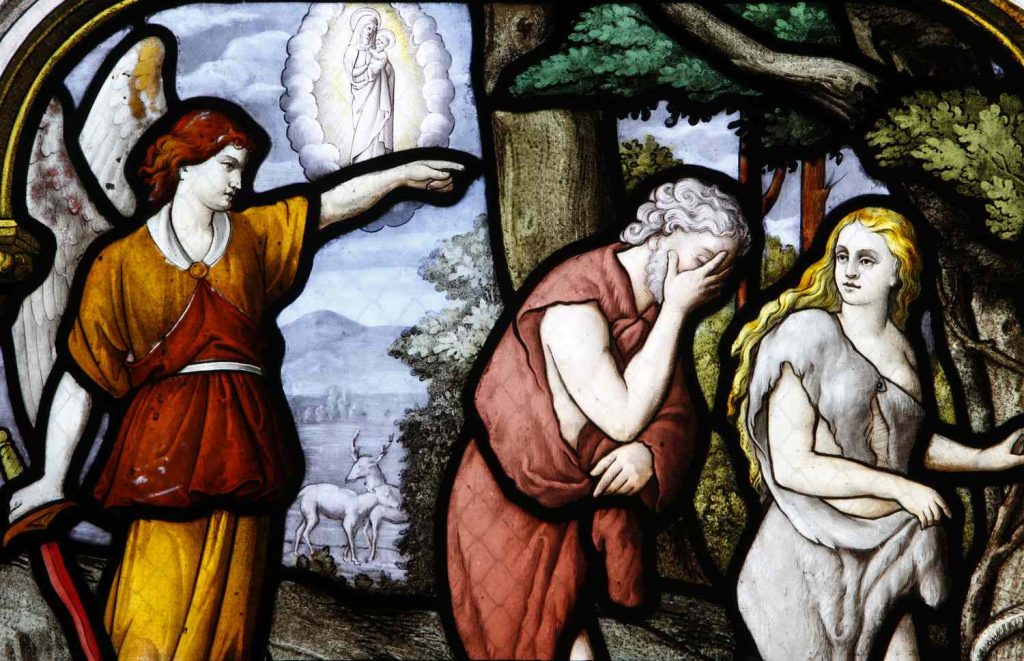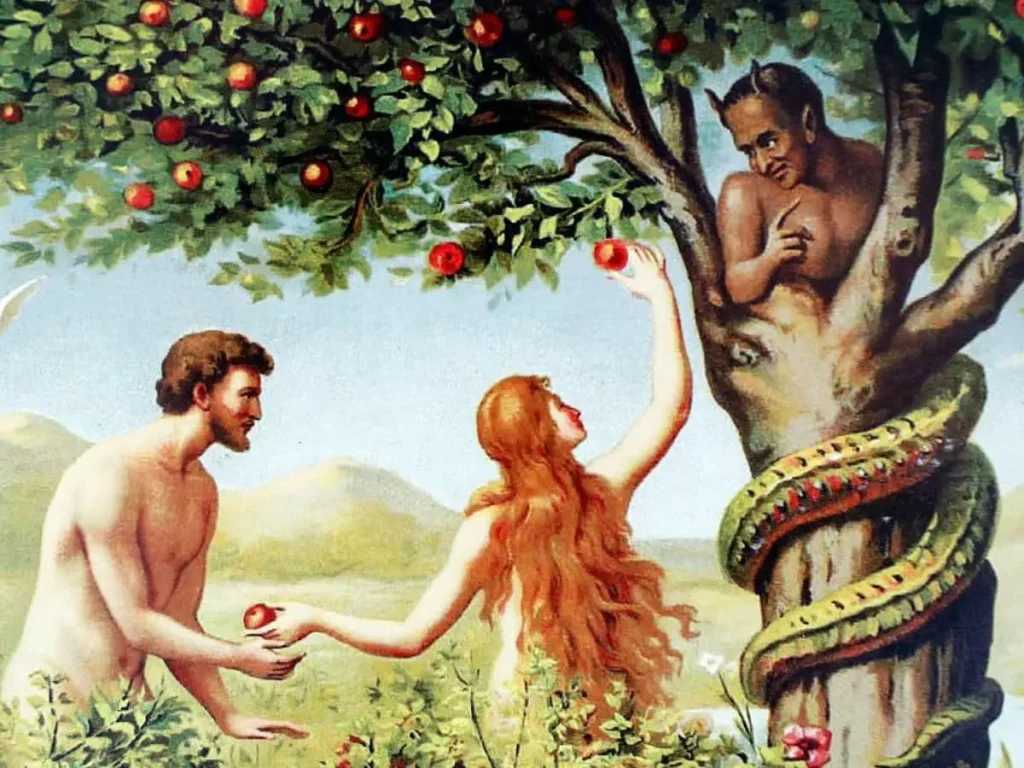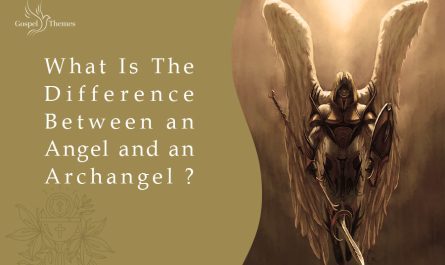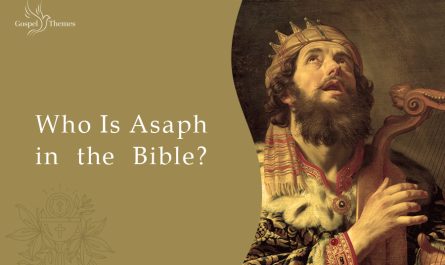Most Christian believers are well associated with the biblical story of Adam and Eve. The first man and woman God created are actually the first sinners that damned humanity with their life on Earth. But did Adam and Eve go to Heaven after their life ended? Continue reading to discover if God is gratuitous enough to forgive even the primary sin of humanity!

Did Adam and Eve go to Heaven Biblical Meaning
Adam and Eve were God’s first humans and primarily lived in the Garden of Eden. Even though this sacred garden is referred to as paradise, it isn’t necessarily Heaven. While they were given free will and small labor tasks, the Lord had only one rule for them to follow. They were not allowed to eat the forbidden fruit from the tree of the knowledge of good and evil.
The first sin was seen as an act of rebellion against God by succumbing to the snake’s deception. Blinded by its seductive powers, Adam and Eve failed to follow the one rule the Lord gave them. Thus, they were exiled from this earthly paradise, and humanity was cursed to repent for its sins.
Many Christian believers wonder if these figures managed to atone for their wrongdoings and if they entered Heaven after they passed. The God portrayed in this religion is said to be forgiving for those who truly feel ashamed of their sins. So did Adam and Eve go to Heaven after being tested with earthly hardships and misfortunes?
What does the Bible say about Adam and Eve going to Heaven?
Even though the Bible itself doesn’t directly say that Adam and Eve went to Heaven, many scholars argue on their behalf. Various verses from the Holy Book are used to highlight the potential outcomes of their actions. However, several key themes allude to their redemption.
Abel’s sacrifice to God
The first instance that may allude to Adam and Eve’s redemption is seen through the devotion of their son Abel. After being exiled from Eden, the two were blessed with the sons Cain and Abel. It’s believed that they continued having faith in God by sharing their knowledge with their children.
The first verses surrounding Abel’s lamb sacrifice to God can be found in Genesis 4. It is said that the two brothers were given different labor tasks, Cain to work the soil and Abel to care for the flock. Even though both sons tried to appease the Lord, only Abel’s sacrifice was deemed appropriate. While Cain laid wheat upon the altar, Abel laid a lamb upon it.
However, the verses of Genesis 4:4 state that God only favored Abel’s sacrifice. Regardless of the outcome, the Lord still accepted a sacrifice from one of Adam and Eve’s sons. Thus, many scholars believe that this acceptance is a symbol of God’s forgiveness.
In the Bible, many verses refer to lambs as suitable sacrifices to God. This repetitive theme is seen in Genesis, Exodus, and Leviticus. Thus, Abel could only learn such practices from Adam and Eve’s devotion to the Lord.
God’s protection and forgiveness
The second important theme alluding to Adam and Eve’s redemption is God’s protection and forgiveness.
When it comes to the forgiveness given to Adam and Eve, the most significant verse is Genesis 3:21. It states: “The LORD God made garments of skin for Adam and his wife and clothed them.”
Many scholars believe that this act of kindness is a symbol of God’s forgiveness. By covering their bodies with animal skin, he makes the first sacrifice to save humanity from its sins. Due to his actions, it’s thought that he forgave Adam and Eve for their disobedience.
Even though they had just broken his rule, he still comforted them after declaring their punishment. This further showcases his hope and love for humanity and their ability to repent for sins.
Other verses that closely relate to this theme are the ones of Ephesians 1:4. These words further imply that God plans to provide salvation for sinners, even Adam and Eve.
Don’t forget that God is depicted as love. So his love for us goes beyond any earthly comprehension. If a person is truly sorry for his sins and devotes his life to serving the Lord, he will be rewarded with eternal life in Heaven.
The story of Judas further explores the theme of sins and forgiveness. You can learn more about whether Judas went to heaven or hell.
The announcement of the first gospel
After God discovered what Adam and Eve had done, he declared his punishment for them and for the snake. The verses that are used as the proto-evangelium can be found in Genesis 3:15. When God delivers his punishment for the first sin, he first addresses the snake.
As an embodiment of evil, this creature uses deception and seduction to trick Adam and Eve into disobeying God. Within the words of the punishment, God also predicts the future outcomes of humanity.
These verses are often seen as the proto-evangelium of the Lord’s future plans for human salvation. They also allude to Jesus’ coming and his banishment of evil.
Mentioning these words opens the opportunity for Adam and Eve to be forgiven and enter Heaven. Even though the snake deceived them, the verses clearly state that God will be victorious over its evils.
It foreshadows Jesus’ coming and the battle with the evil forces. But despite the serpent’s wickedness, it can not compare with God’s power. Despite all attempts to rule over the world, evil will be banished and punished by the Lord and his Holy servants in the end.

Spiritual Meaning and Symbolism of Adam and Eve’s Redemption
Besides the biblical meaning, Adam and Eve’s fate has stirred numerous discussions among religious scholars. Since the subject is open to various interpretations, there are several key figures that argue for the atonement of their sins. To better understand the spiritual meaning and symbolism, here are some of the theologians that discussed the issue.
Thomas Boston on Adam and Eve’s redemption
Thomas Boston is one of the most important figures who believe in Adam and Eve’s redemption. This Scottish theologian, philosopher, and church leader is known for his books The Fourfold State and The Crook in the Lot. But the question of Adam and Eve’s entrance into Heaven can be found in collections of his work.
These arguments can be found in The Whole Workslate of Reverend Thomas Boston. Here, he mentioned God’s first sacrifice by covering the naked Adam and Eve with the skin of animals. Then, he continues to explain how Abel learned from his parents about such sacrifices when laying the lamb on the altar. As mentioned above, God took kindly to Abel’s sacrifice, which alludes to the atonement of their sins.
Randy Alcorn on Adam and Eve’s redemption
The second important figure to make a stance on Adam and Eve’s behalf is Randy Alcorn. Known for his renowned book “Heaven,” he delicately explains God’s willingness to repent their sins. As seen in Chapter 9 of Heaven, he argues that instead of creating other humans, the Lord is willing to give them a chance to redeem themselves.
Furthermore, he elaborates on God’s love to restore things to their original state or even make them better. So if he’s willing to let Adam and Eve walk the Earth even though they’re exiled from Eden, it’s a sign that he’s giving them a second chance. With the pro-Evangelium alluding to the evil serpent’s defeat at the end, it’s portrayed that God has a bigger plan for us all.
You Might Be Interested: Will God Forgive Me For Repeating the Same Sin

Frequently Asked Questions
How can I make sure I go to Heaven?
The entrance to Heaven is up to God alone. All we can do to ensure we go to the heavenly realm is to have faith, lead a moral life, atone for our sins, and pray for the Lord’s forgiveness. We should fill our hearts with the same love we expect him to have for us when Judgement Day comes.
Who was the first person to go to Heaven alive?
In the Holy Bible, it’s thought that only two people were blessed with entering Heaven without dying. The first is Enoch, mentioned in the verses Genesis 5:21–24, where it’s said that he walked with God and he took him away. In 2 Kings 2:1, the second person to enter Heaven without passing is Elijah.
Who saw Heaven in the Bible?
Several figures in the Bible are mentioned to have seen heaven. The most important verses are in the Book of Revelation 21-22, where John is given a vision of Heaven. Other instances are with Elisha in 2 Kings 6:15-17, Ezekiel in Ezekiel 1:1, Jesus in Mark 1:9-11, Stephen in Acts 7:55-56, and Paul in 2 Corinthians 12:2-4.
Conclusion
So did Adam and Eve go to heaven? Even though several Bible verses allude to their forgiveness, it’s not clearly stated that they went to Heaven. The decision of who enters Heaven is solely on God, and we should not question his power. The best we can do is indulge in prayers and ask the Lord to guide us down the right path.

 by
by 

